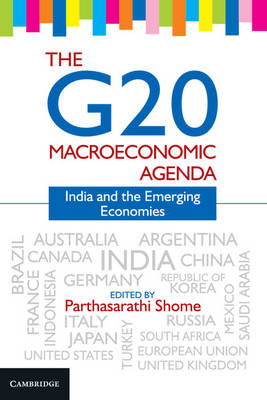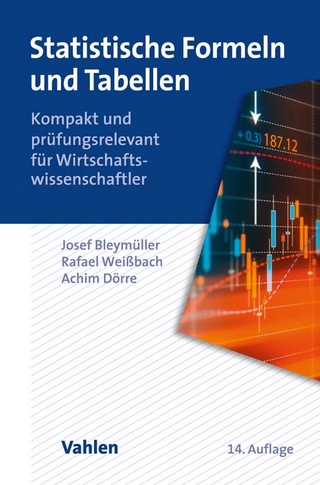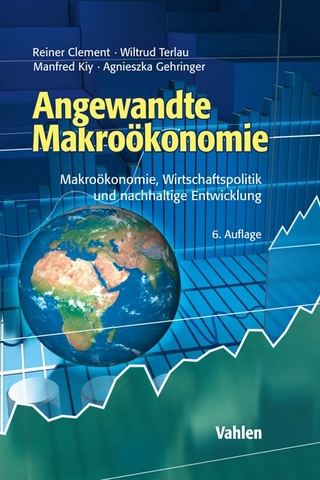
The G20 Macroeconomic Agenda
Cambridge University Press (Verlag)
978-1-107-05110-2 (ISBN)
As the premier forum for global economic governance, G20 was successful in warding off the global economic crisis of 2008–09 and preventing it from becoming a full-blown depression. This book assesses the progress of the G20 with a focus on India. It discusses the role India has played in the success of the G20 process and, more importantly, delineates the possible barriers to India's enhanced involvement in the G20, and in global governance in general. As the global economy remains mired in uncertainties - stemming from the Euro crisis, lacklustre economic performance in the United States, and slowing of major emerging economies - this volume fills the need for a collection of analytical research papers from the perspective of emerging economies, and takes stock of the performance of the G20 thus far. It also points towards the unresolved issues and the future course of action in global financial and macroeconomic stance.
Parthasarathi Shome, Adviser to the Finance Minister, Department of Economic Affairs, Ministry of Finance, Government of India, has served as Director and Chief Executive, Indian Council for Research on International Economic Relations (ICRIER), New Delhi. He was Chief Economist, Her Majesty's Revenue and Customs (HMRC), United Kingdom (2008–11) and Adviser to the Indian Finance Minister (2004–08), when he also served as Chairman, Empowered Committee for Computerisation of the tax departments, and Permanent Invitee, Empowered Committee of State Finance Ministers for VAT/GST. Earlier, he served at the International Monetary Fund (1983–2004) in various capacities, including as the first Senior Economist in the Office of the Managing Director (1988–89), Chief of Tax Policy (1992–95), and Director, IMF Singapore Institute (2001–03). He was Professor of Economics at American University, Washington DC, where he served between 1975 and 1983. He is the author of several books. He has provided technical assistance to over thirty countries in Africa, Asia, Europe and Latin America. He chaired India's Ninth Five Year Plan and Tenth Five Year Plan Advisory Groups on Tax Policy and Administration. He was Professor at ICRIER (1999–2001) and Director, National Institute of Public Finance and Policy, New Delhi (1995–97). In 2000, he was awarded the highest civilian honour of the Brazilian government, Commander of the Order of the Southern Cross, for his contributions to Brazilian tax reform. He has published in the Journal of Economic Theory, the Journal of Public Economics, the National Tax Journal, Oxford Economic Papers, Public Finance, Public Finance Quarterly, Staff Papers IMF, and other international and national journals. For his PhD thesis on the burden of the corporation income tax, he received the National Tax Association of America award for 'outstanding student of taxation and public finance'. His PhD is from Southern Methodist University (1975), and he holds Master's d
Preface; Part I. Introduction: 1. The G20: evolution, functioning, prospects: a concise review Parthasarathi Shome; Part II. Financial Sector Reforms and Regulation: 2. Financial regulation and the G20: options for India Ashima Goyal; 3. Financial sector reforms under G20 and the Indian banks Poonam Gupta; Part III. Global Macroeconomic Coordination and Reforming International Financial Institutions: 4. The G20MAP, sustaining global economic growth and global imbalances: India's role in supporting cooperation among global macroeconomic policymakers David Vines; 5. Reform of international financial institutions T. N. Srinivasan; 6. Capital controls: instruments and effectiveness Parthasarathi Shome, Jyotirmoy Bhattacharya and Shuheb Khan; 7. The International Monetary System: mitigating risks from dominance of the dollar and India's stance Renu Kohli; 8. The challenges in IMS reforms: an emerging markets' perspective Alok Sheel; 9. Chiang Mai Initiative and its relevance for India Sheetal K. Chand; Contributors; Index.
| Erscheint lt. Verlag | 14.7.2014 |
|---|---|
| Verlagsort | Cambridge |
| Sprache | englisch |
| Maße | 160 x 240 mm |
| Gewicht | 630 g |
| Themenwelt | Wirtschaft ► Volkswirtschaftslehre ► Makroökonomie |
| ISBN-10 | 1-107-05110-X / 110705110X |
| ISBN-13 | 978-1-107-05110-2 / 9781107051102 |
| Zustand | Neuware |
| Haben Sie eine Frage zum Produkt? |
aus dem Bereich


